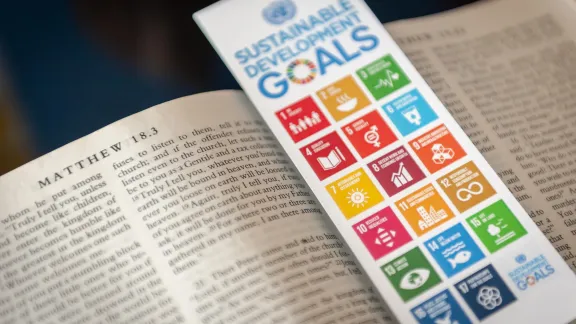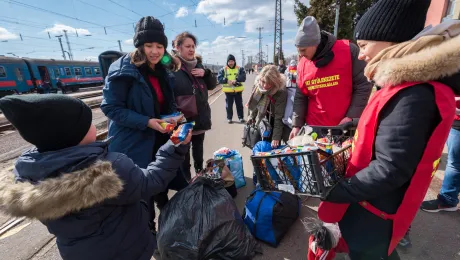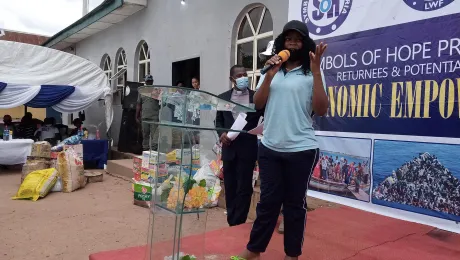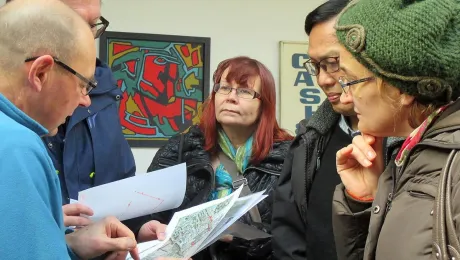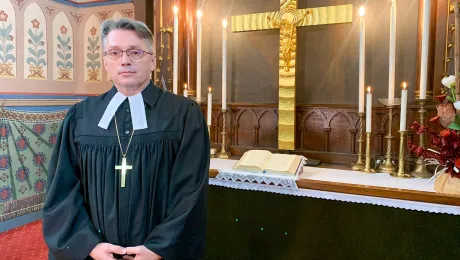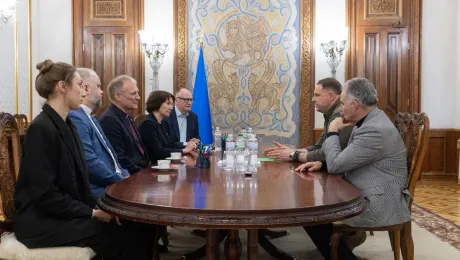Churches for Sustainable Development
The initiative
‘Waking the Giant’ is a global ecumenical initiative of The Lutheran World Federation (LWF). It aims to empower churches to contribute effectively to the 2030 UN Agenda for Sustainable Development. The initiative provides churches and church-related actors with tools and training to relate their on-going work to the Sustainable Development Goals (SDGs). In the context of the global ‘Waking the Giant’ network, churches and church-related actors come together for experience exchange, mutual learning and joint action. LWF also supports churches and ecumenical partners in selected countries to set up implementation mechanisms for taking stock of their existing work in relation to the SDGs and engage in joint planning for direct action and advocacy.
The LWF is committed to helping realize the United Nation’s Sustainable Development Goals. In September 2015, the UN adopted an agenda that set up 17 goals covering a wide range of issues, including ending poverty, hunger and promoting well-being, ensuring access to education, water and energy and working for peace, equality and combat the negative impacts of climate change. The SDGs are meant to encourage action over the next 14 years in areas of importance for humanity and our planet.
In a worldly analogy to Christ’s promise to “make all things new” (Rev. 21.5), the SDGs represent an opportunity to enhance human dignity and our stewardship towards God’s creation. In intersection with various priorities of the LWF own strategy With Passion for the Church and the World, the SDGs invite the LWF “to leave no one behind” and to engage with actors within and beyond the ecumenical family to change social structures to bring wider attention to people in need.
With their vocation to serve, churches have for centuries engaged in promoting dignity and justice, particularly among those oppressed, forgotten or pushed to the margins. Many churches have established themselves as important actors in the provision of social and development services and as advocates for global human values, such as gender equality, peace and justice. They distinguish themselves through the permanence of their presence, an often high level of credibility and a wide reach at community level, including to the remotest areas where state institutions may be absent.
Despite the strong work being carried out by churches in relation to individual SDGs, many of them are not familiar with UN processes and the language of the ‘Agenda 2030’. There is an important ‘translation’ role to be played in order to bring together both sides. Mutual understanding and respect will be an important outcome.
The SDG Toolbox provides churches and church-related actors with information and training material on the UN Agenda 2030 for Sustainable Development. At the moment, the Toolbox includes a general theological introduction to the SDGs and specific modules and/or self-assessment tools on SDG 1 (No Poverty), SDG 2 (Zero Hunger), SDG 3 (Good Health and Well-Being), SDG 4 (Quality Education), SDG 5 (Gender Equality), and SDG 16 (Peace, Justice and Strong Institutions). The ‘Waking the Giant’ SDG Self-Assessment tool (available both in a web-based version and as PDF questionnaires for download) enables church-based actors to easily comprehend the link between their ongoing activities and specific Goals and Targets of the Agenda 2030. There is also a SDG Training Manual including additional learning materials that can be used by anyone who would like to organize trainings on the SDGs for churches and other faith communities.
Contact
Get Involved
Share with us your stories, photographs and insights using the #LWF

